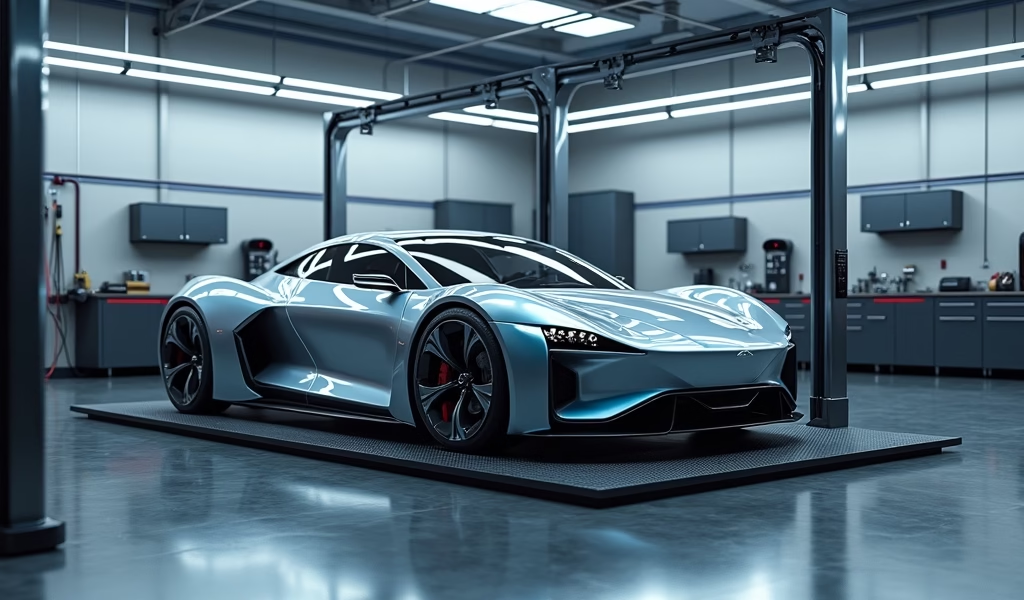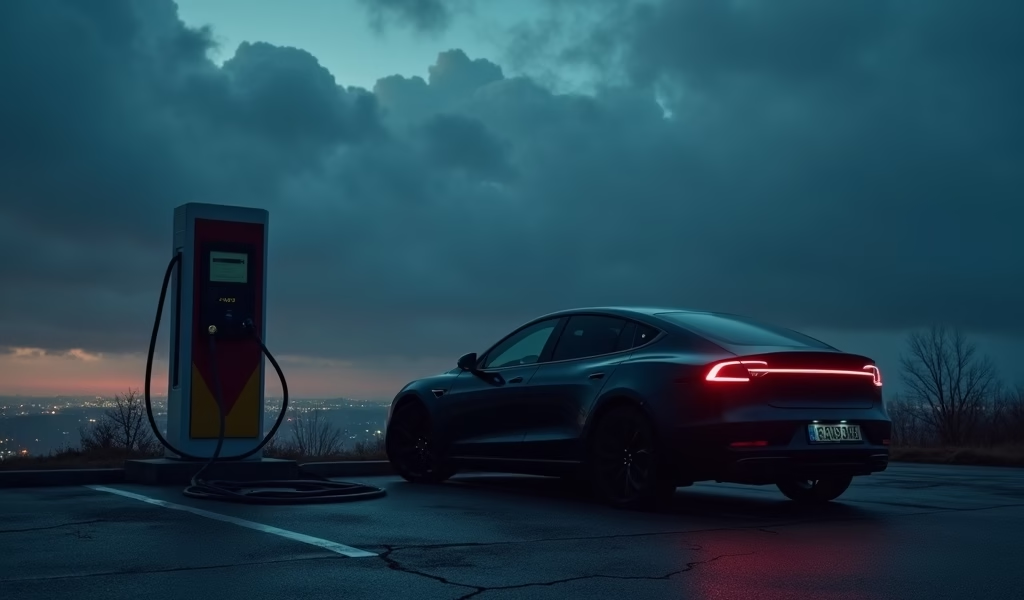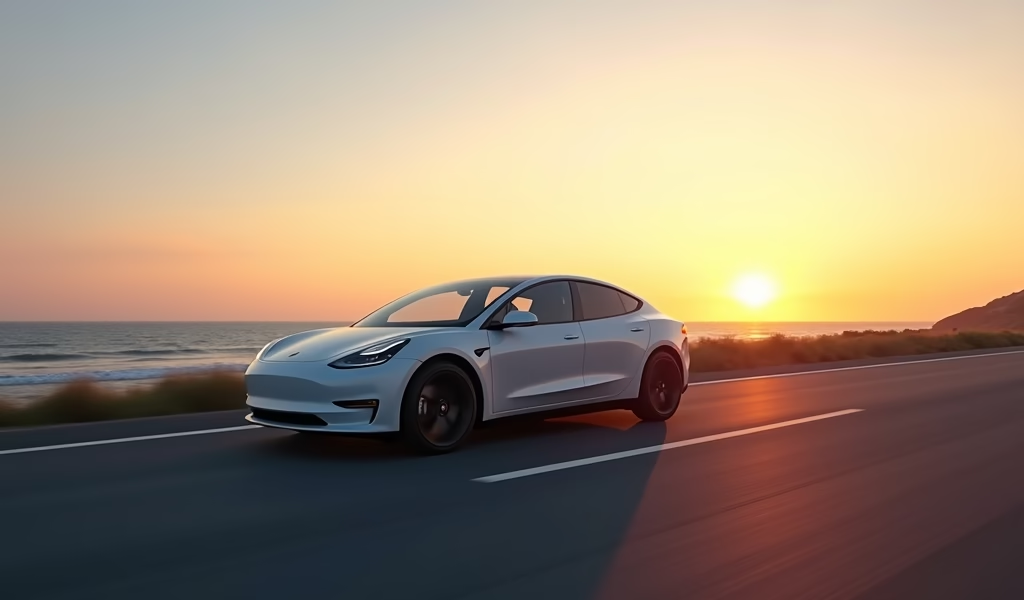Overview
This article offers five practical considerations for potential electric vehicle buyers from a mechanic’s perspective, covering financial aspects, daily usability, environmental impact, future-proofing, and personalized decision-making. It emphasizes that while EVs represent the automotive future with significant advantages in maintenance and operating costs, the right choice depends on individual circumstances including driving patterns, charging access, and long-term ownership plans.
Should I Buy an Electric Car? 5 Pro Tips from a Mechanic’s Perspective
Wondering “should I buy an electric car” in today’s rapidly evolving automotive landscape? You’re not alone. Like a curious traveler standing at a crossroads, many drivers find themselves torn between sticking with familiar gas-powered vehicles and making the leap to electric. As someone who’s had his hands deep in engines both old and new for over two decades, I’ve seen the industry transform like a caterpillar morphing into a butterfly – sometimes beautiful, sometimes awkward, but always fascinating.
Just last month, a long-time customer rolled into my shop with a gleaming new Tesla Model 3, his face a mixture of pride and anxiety. “Frank,” he said, “did I make the right choice?” That question has become as common in my garage as the smell of motor oil once was. The truth is, there’s no one-size-fits-all answer, but I can certainly guide you through the considerations that matter most.
Table of Contents
- Understanding Electric Vehicles: Beyond the Buzz
- Financial Considerations: More Than Just the Sticker Price
- Practical Daily Use: Is an EV Compatible with Your Lifestyle?
- Environmental Impact: The Bigger Picture
- Future-Proofing Your Investment: What Lies Ahead
- Making the Decision: Your Personal EV Roadmap
- Conclusion: The Road Ahead
- Frequently Asked Questions
Understanding Electric Vehicles: Beyond the Buzz
Electric vehicles (EVs) are like smartphones on wheels compared to the rotary phones of traditional combustion engines. They operate on entirely different principles, and understanding these differences is crucial before making your decision.
At their heart, EVs run on electric motors powered by rechargeable battery packs, typically lithium-ion. Unlike the complex orchestra of moving parts in a combustion engine – where pistons, valves, and crankshafts dance in precision – an electric motor is elegantly simple. Have you ever considered how many components in your current car exist solely to manage gasoline combustion? In an EV, they’re simply gone.
This fundamental difference translates to several practical advantages. Maintenance needs shrink dramatically – no oil changes, fewer brake replacements (thanks to regenerative braking), and no transmission issues. I remember when Tom, a skeptical pickup truck devotee, brought in his new Ford F-150 Lightning for its first check-up. “I feel like I’m cheating on my mechanic,” he joked, realizing there was dramatically less to maintain.
But simplicity doesn’t mean sacrifice. Modern EVs offer performance that can make traditional sports cars blush. The instant torque delivery feels like being pushed by a giant invisible hand – something you have to experience to truly understand. However, this technology is still evolving, and understanding electric cars’ pros and cons requires looking beyond the honeymoon phase of ownership.
Financial Considerations: More Than Just the Sticker Price

When asking “should I buy an electric car,” the financial equation often dominates the conversation. Like an iceberg, the true cost extends far beyond what’s immediately visible at the dealership.
Yes, the upfront cost of most EVs remains higher than comparable gas models – a significant hurdle for many. But have you considered the total cost of ownership over 5-10 years? This is where the math gets interesting.
Let’s break down the economics:
- Purchase price: Generally higher, though the gap is narrowing yearly
- Incentives: Federal tax credits up to $7,500, plus state and local incentives can significantly reduce costs
- Maintenance: Approximately 30-40% lower than gas vehicles over time
- Fuel savings: Electricity costs substantially less than gasoline per mile driven
- Insurance: Currently often higher, though this is evolving as EVs become more common
- Resale value: Varies by model, but strong for some premium EVs
I recall helping Sarah, an accountant with a 60-mile daily commute, crunch the numbers on her potential EV purchase. Initially balking at the price tag, her perspective shifted dramatically when we calculated her $250 monthly gas expenditure against an estimated $60 in electricity costs. Combined with minimal maintenance needs, her breakeven point came much sooner than expected.
According to Consumer Reports’ analysis, EV owners can save between $6,000-$10,000 over the life of the vehicle compared to gas equivalents. However, these savings materialize over time, requiring patience and long-term ownership.
Practical Daily Use: Is an EV Compatible with Your Lifestyle?
The rubber truly meets the road when considering how an electric vehicle fits into your daily life. Like a pair of shoes that looks amazing but pinches your toes, an EV that doesn’t match your lifestyle will become a source of frustration rather than joy.
Range anxiety – that nagging fear of running out of juice – remains the most common concern I hear from potential EV buyers. Modern electric vehicles offer ranges anywhere from 150 to over 500 miles, but how much do you actually need? The average American drives about 40 miles daily. Does your typical driving pattern require more? What about those occasional long trips to visit family or take vacations?
Charging infrastructure is expanding like wildfire, but availability varies dramatically by region. Living in apartment buildings without dedicated charging presents challenges that homeowners with garages don’t face. One customer, James, installed a Level 2 charger in his garage and describes the convenience of “waking up to a full tank” every morning as “life-changing” compared to his previous gas vehicle.
Weather conditions present another practical consideration. In extreme cold, EVs can lose 10-30% of their range temporarily. I’ve had several customers in Minnesota who were shocked by their EVs’ winter performance until they adapted their habits accordingly.
Consider these practical lifestyle questions:
- Do you have access to reliable home charging?
- What’s your typical daily mileage?
- How often do you take long trips?
- Is public charging infrastructure well-developed in your region?
- Do you experience extreme weather conditions?
- Do you need to tow regularly?
The fascinating facts about electric cars extend beyond their technology to how they reshape daily habits. For many, the shift to “fueling” at home rather than visiting gas stations represents a welcome change to established routines.
Environmental Impact: The Bigger Picture
Environmental concerns drive many potential EV buyers, but the ecological equation isn’t as straightforward as “electric good, gas bad.” It’s more like comparing apples to oranges that were grown and transported under different conditions.
The environmental footprint of an electric vehicle has three main components: manufacturing impact, electricity source, and lifetime emissions. Battery production currently requires significant resources and energy, creating what some researchers call a “carbon debt” at manufacture. Have you considered where your electricity comes from? An EV charging from coal-derived electricity has a different environmental profile than one charging from solar or wind power.
Nevertheless, EPA research confirms that even accounting for battery production and electricity generation, EVs typically produce fewer lifetime emissions than conventional vehicles. The longer you drive your EV, the more this advantage compounds.
I remember discussing this with Maria, an environmental scientist who brought her new Hyundai Kona Electric in for its first check-up. She’d done extensive research and explained how her home solar panels created a truly sustainable transportation system. “It’s not perfect,” she acknowledged, “but it’s significantly better than the alternative, especially as the grid gets cleaner.”
Beyond carbon emissions, EVs eliminate tailpipe pollutants that contribute to urban smog and respiratory issues. They’re also significantly quieter, reducing noise pollution – something my urban customers particularly appreciate.
Future-Proofing Your Investment: What Lies Ahead

Asking “should I buy an electric car” means considering not just today’s landscape, but tomorrow’s. Like investing in early internet companies, the EV market is rapidly evolving, with both opportunities and pitfalls for early adopters.
The regulatory environment is shifting decidedly toward electrification. California, the largest auto market in the US, has banned new gas car sales after 2035, with many states and countries following suit. Major automakers from Ford to Volkswagen have announced plans to go mostly or fully electric within 10-15 years. The writing is on the wall for internal combustion engines – it’s not a question of if but when they’ll become the minority.
Technology improvements continue at a breakneck pace. Battery costs have plummeted by nearly 90% since 2010, while energy density improves annually. This trend suggests both longer ranges and lower prices in the coming years. Just last week, I spoke with a battery engineer who compared today’s lithium-ion batteries to early smartphones – impressive, but with enormous room for improvement.
Resale value presents a complex consideration. Some premium EVs like Tesla have maintained strong resale values, while others have depreciated faster than gas equivalents due to rapid technological advancement and battery concerns. However, as gas vehicles face increasing restrictions and potentially higher taxation, their long-term value proposition becomes questionable.
The disadvantages of electric cars we discuss today may become historical footnotes as technology advances. Remember when cell phones were the size of bricks with two-hour battery life? EV technology is on a similar trajectory of improvement.
Making the Decision: Your Personal EV Roadmap
With all these considerations swirling like leaves in autumn, how do you actually decide whether an electric car is right for you? Here’s my five-point framework, developed after guiding hundreds of customers through this very decision:
- Know your driving patterns: Track your typical daily mileage and annual long trips. Be honest about your needs versus wants.
- Assess your charging situation: Evaluate home charging possibilities and local public infrastructure. Remember that 80% of charging typically happens at home.
- Calculate true ownership costs: Look beyond sticker price to include incentives, maintenance, fuel savings, and projected resale value.
- Consider your timeline: If you typically keep vehicles 10+ years, the economics strongly favor EVs. If you replace every 2-3 years, the calculation changes.
- Test drive multiple options: The driving experience of EVs differs dramatically between makes and models. What feels responsive to one driver might feel twitchy to another.
I vividly recall Robert, a retired engineer who meticulously followed this framework, creating spreadsheets comparing his gas-powered BMW to several EV alternatives. He calculated his breakeven point to the month and confidently chose a Hyundai Ioniq 5 that matched his needs perfectly. Six months later, he told me it was the most satisfied he’d ever been with a vehicle purchase.
For many customers, I suggest starting with a plug-in hybrid (PHEV) as a transitional vehicle. These offer electric-only range for daily commuting with gasoline backup for longer trips – a compromise that eases range anxiety while providing many EV benefits. They’re like training wheels for the all-electric future.
Conclusion: The Road Ahead
The question “should I buy an electric car” doesn’t have a universal answer, but it does have your answer – one that emerges from careful consideration of your specific circumstances, needs, and values. Like choosing between city and rural living, neither option is inherently superior for everyone.
What’s undeniable is that electric vehicles represent the future of transportation. The transition is happening – perhaps not as quickly as early adopters hoped, but far more rapidly than skeptics predicted. For most drivers, it’s no longer a question of if you’ll drive electric, but when and how you’ll make the transition.
As someone who’s spent a lifetime with vehicles of all types, I can tell you that electric cars aren’t just different machines – they represent a different relationship with transportation itself. The quietness, the smoothness, the convenience of home charging, and the reduced maintenance create an ownership experience that many find surprisingly superior once they adjust to the differences.
Whatever you decide, make it a choice based on knowledge rather than fear or hype. The perfect vehicle is the one that serves your actual needs, fits your budget, and ideally, brings you joy when you slide behind the wheel. Whether that vehicle plugs in or fills up is ultimately less important than how well it fits your life.
Frequently Asked Questions
How long do electric car batteries last?
Most modern EV batteries are designed to last 10-20 years and come with 8-10 year warranties. Battery degradation typically slows after initial decline, with many EVs retaining 80% capacity after a decade of use.
Are electric cars more expensive to insure?
Currently, EVs often cost 10-30% more to insure than comparable gas vehicles due to higher repair costs and specialized parts. This gap is gradually narrowing as EVs become more mainstream and repair processes standardize.
Can I install a charger in my apartment?
Installation in apartments depends entirely on your building management’s policies and parking situation. Some newer apartment complexes are adding EV charging as an amenity, while others may allow installation at your parking space if you cover costs.
How long does it take to fully charge an electric car?
Charging times vary dramatically by charger type and vehicle: 30-40 hours on a standard household outlet, 4-10 hours on a Level 2 home charger, and 20-40 minutes to 80% on a DC fast charger. Most owners charge overnight at home when the vehicle isn’t being used.
Are electric cars really better for the environment?
Yes, even accounting for battery production and electricity generation, EVs produce fewer lifetime emissions than gas vehicles in most regions. The advantage grows as you drive more miles and as electrical grids transition to renewable energy sources.


Pingback: Electric Cars for Beginners: 7 Essential Maintenance Tips - knowsyourcar.com